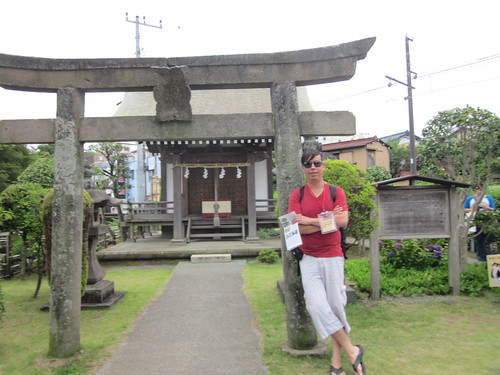When I was doing my doctorate, I took a variety of methods courses. Seeing as I had taken economics during my Masters and that I was originally a chemical engineer, I thought it was advisable to do coursework that would actually help me in a variety of situations. I took quantitative methods, qualitative methods, spatial analysis and GIS, etc. My PhD advisor never once questioned my intention to undertake fieldwork in order to validate what the quantitative datasets and spatial analyses were telling me. I do not think for a second he wanted me to be a “one trick pony”.
To me, field research is fundamental to understanding social phenomena, and many natural phenomena. In particular, for the kind of research I do (wastewater governance, water privatization, informal waste recycling), much of what I have to do to understand how waste and water governance processes work is to observe, interview, dialogue with stakeholders. While I am fond of quantitative datasets that one can download from the internet, many of the databases I have created have been obtained from undertaking archival research and fieldwork. Much of what I know about wastewater treatment plants in Mexico comes from actually visiting them, and seeing them operate (i.e., from doing fieldwork).
I tweeted a few weeks ago that I wasn’t sure why people were searching on my blog for answers to the importance and relevance of fieldwork. I think that there are at least 3 reasons why doing fieldwork in my area (comparative public policy) is important (and why my own graduate and undergraduate students are required to go on the field for their research).
1. Fieldwork gives the researcher an “on-the-ground”, more realistic perspective than any second-hand, pre-digested/analyzed account.
2. Fieldwork enables the researcher to create networks of similarly-minded scholars, and to share insights about the same field site.
3. Fieldwork allows the researcher to examine political and policy processes as they occur, giving a complementary perspective to historical or diachronic analyses.
There are, of course, all sorts of drawbacks to engaging in fieldwork, particularly when it is on potentially triggering and painful subjects (violence against women or children both come to mind, but even my own field, the social science of sanitation, provides ample opportunity to witness a lot of pain and therefore, to create emotional pain from being witness). Thus the importance of self-care when undertaking fieldwork in dangerous places or areas where there is a lot of violence or emotional pain. Dr. Kimberly Theidon wrote about this subject for a recently published DSD working paper.
Overall, I love fieldwork and find that it is important and relevant for my own work and my students’ work. Even if I find it very challenging (particularly because I work with and study vulnerable populations and thus I need to be extra careful about ethical considerations), and sometimes not particularly pleasant, I gain insights I would not be able to otherwise.
If you have additional insights on why fieldwork is important and relevant, I’d appreciate it if you left them in the comments section.
UPDATE: Several colleagues chimed in, here are their insights.
Colleagues who do fieldwork: why do you think it is important to do so? Appreciate your answers (for a blog post I'm writing).
— Dr Raul Pacheco-Vega (@raulpacheco) June 13, 2014
@raulpacheco If you're relying heavily on interviews it can help to focus your questions, confirm or correct assumptions…
— Nathaniel Burke (@NathanielBurke3) June 13, 2014
@raulpacheco Adding to @NathanielBurke3 it increases external validity.
— yourqueerprof (@drcompton) June 13, 2014
@raulpacheco fieldwork strengthens teaching too–realities of practice vs the theoretical
— yourqueerprof (@drcompton) June 13, 2014
@raulpacheco Otherwise you lose contact with reality, thus producing partially false results: virtual lies, particularly in social research.
— Carla Aceves (@carlaflip) June 13, 2014
@raulpacheco @ProfCaraJones @texasinafrica TY! Also, I'm using #fieldwork to figure out how to best share my ethnography w participants.
— Jamie Thomas (@jamieisjames) June 13, 2014
@raulpacheco because we need to take everyone's subjectivity seriously, and sharing human experiences is the best way to do that
— Alex W. Rodriguez (@arodjazz) June 13, 2014
@raulpacheco #Fieldwork is crucial to developing a relationship w ppl we study, 2 learn their concerns, participate in their lives & share.
— Jamie Thomas (@jamieisjames) June 13, 2014
@raulpacheco my research deals with people's lives, and the best way to (try to) understand them is to talk to the people themselves.
— Matt Donoghue (@dangerdonoghue) June 13, 2014
@raulpacheco Context. Learning to id & relying on correct assumptions in re quant work. Figuring out causal mechanisms, processes.
— Laura Seay (@texasinafrica) June 13, 2014
@raulpacheco testing assumptions, not only causal, but also qualitative about place,ppl, language, culture.
— Cara E. Jones (@ProfCaraJones) June 13, 2014


0 Responses
Stay in touch with the conversation, subscribe to the RSS feed for comments on this post.